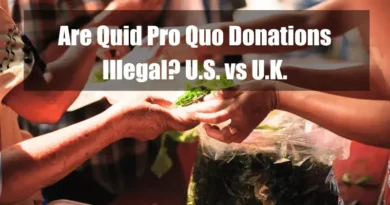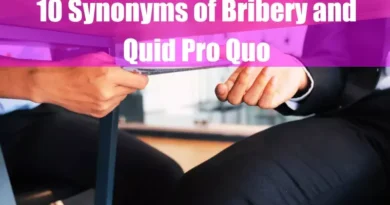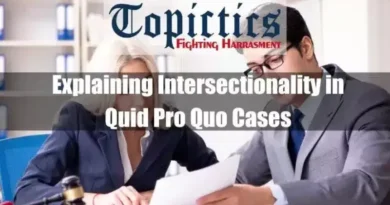How Can GOP Claim No Quid Pro Quo?
The GOP’s assertion of “no quid pro quo” during the Trump-Ukraine scandal was based on several factors. President Trump and his allies consistently denied exchanging favors, with Trump stating, “There was no quid pro quo.” Some Republican senators acknowledged that Trump’s actions were inappropriate but argued they did not warrant removal from office. For instance, Senator Lamar Alexander stated that while Trump’s actions were “inappropriate,” they did not justify impeachment. Additionally, the White House released a memorandum of Trump’s call with Ukrainian President Zelenskyy, which did not explicitly link military aid to investigations, allowing Republicans to argue that there was no direct evidence of a quid pro quo. However, testimonies from officials like Ambassador Gordon Sondland indicated an understanding of a quid pro quo, complicating the GOP’s position.
Introduction
The Republican Party’s (GOP) assertion of “no quid pro quo” during the Trump-Ukraine scandal was multifaceted, involving legal interpretations, political strategies, and public messaging. This detailed analysis explores the GOP’s rationale, the evidence presented, and the broader implications of their stance.
Understanding “Quid Pro Quo”
The term “quid pro quo” is Latin for “something for something,” referring to an exchange where one party provides something of value in return for something else. In the context of the Trump-Ukraine scandal, the alleged quid pro quo involved President Trump withholding military aid to Ukraine to pressure Ukrainian President Volodymyr Zelenskyy into announcing investigations that could politically benefit Trump.
The GOP’s Initial Denial
Initially, President Trump and his allies categorically denied any quid pro quo. Trump described his phone call with Zelenskyy on July 25, 2019, as “perfect,” asserting that no pressure was exerted on Ukraine. This narrative was reinforced by key figures within the administration and the GOP.
Legal Arguments Against Quid Pro Quo
The GOP’s legal defense centered on the argument that even if a quid pro quo existed, it did not constitute an impeachable offense. They contended that foreign policy often involves negotiations where aid is contingent upon certain actions by the recipient country. Therefore, conditioning aid on investigations was portrayed as a legitimate exercise of presidential authority rather than an abuse of power.
Disputing the Evidence
Republicans challenged the evidence, suggesting a quid pro quo. They emphasized that the released transcript of the Trump-Zelenskyy call did not explicitly link military aid to the requested investigations. Furthermore, they highlighted statements from Ukrainian officials who claimed they did not feel pressured by President Trump. This line of reasoning aimed to cast doubt on the narrative that Trump had engaged in coercive behavior.
Alternative Explanations for Withholding Aid
The GOP offered alternative reasons for temporarily withholding military aid to Ukraine. They argued that the hold was due to concerns about corruption within Ukraine and a desire to ensure that U.S. taxpayer funds were used appropriately. Additionally, they pointed to a broader skepticism about foreign aid and a desire for European countries to contribute more to Ukraine’s defense as factors in the decision-making process.
Public Messaging and Political Strategy
The phrase “no quid pro quo” became a central talking point for the GOP. By consistently repeating this assertion, they aimed to shape public perception and create doubt about the allegations. This messaging strategy was designed to rally the Republican base and portray the impeachment inquiry as a partisan attack lacking substantive evidence.
Internal GOP Divergence
Despite a unified public front, there were internal disagreements within the GOP regarding the defense of President Trump. Some Republicans acknowledged that while Trump’s actions were inappropriate, they did not rise to the level of impeachable offenses. Others fully embraced the “no quid pro quo” narrative, arguing that the president had acted within his rights. This divergence highlighted the challenges within the party in formulating a cohesive defense strategy.
Testimonies and Contradictions
The impeachment inquiry featured testimonies from key officials, such as Ambassador Gordon Sondland and diplomat William Taylor, who provided evidence suggesting a quid pro quo. Sondland testified that there was a clear understanding that military aid was contingent upon Ukraine announcing the desired investigations. These testimonies complicated the GOP’s defense, leading to shifts in their arguments over time.
Conclusion
The GOP’s claim of “no quid pro quo” was a complex interplay of legal reasoning, political strategy, and public messaging. By challenging the evidence, offering alternative explanations, and emphasizing legal interpretations, Republicans sought to defend President Trump against impeachment. This approach underscored the deeply partisan nature of the impeachment proceedings and highlighted the challenges inherent in addressing allegations of presidential misconduct.









